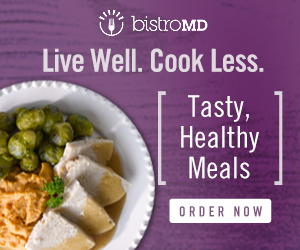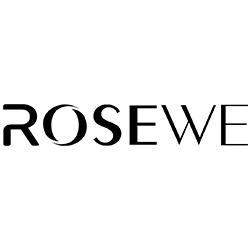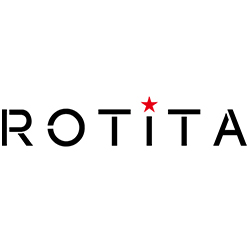California’s COVID-19 vaccine system is generally operating on an honor system.
When you make a vaccine appointment online, you may be asked to check a box, say “food and agriculture” or “chronic pulmonary disease,” that indicates you fall into one of the groups eligible for inoculation. But when you show up at the clinic or pharmacy, you’re unlikely to be asked for documentation proving you’re a nurse or have severe lung disease—a profession and a medical condition that both make you eligible for inoculation. They take your word that you qualify.
Due to the lack of oversight, some people who aren’t eligible can easily get vaccinated — just check a box indicating you’re eligible — and this is called skipping the line.
While the California Department of Public Health didn’t offer comment on the issue of skipping the line, health experts seem to agree that anyone who flat out lies to get a vaccine for no good reason is acting unethically.
Exactly who might that person be? “I would say somebody who is completely healthy and fine and wants to go to Cabo San Lucas for spring break,” said Dr. George Rutherford, director of the Prevention and Public Health Group at UCSF.
Who isn’t that person? People who may not be eligible, but who hang out around outside mass vaccine sites in hopes of getting a dose that would be thrown away if an arm wasn’t available. “That doesn’t bother me at all,” he said.
COVID-19 vaccines are in short supply and while getting appointments may be slightly easier compared to a month ago, they remain scarce.
People are scrambling to get the shot and even those who are eligible may have to spend several days looking for an appointment.
The state of California has a prioritization framework, based on the Centers for Disease Control and Prevention guidelines, that recommends which groups of people public health departments and vaccine providers should give shots to first. The framework is meant to help people who are at a higher risk for severe infection and death from the coronavirus get the vaccine. But ultimately, counties and health care providers can decide who to vaccinate.
The state put health care workers and seniors at the front of the line, and vaccine entities, from counties to providers, aligned with this recommendation. But as more groups have been added, counties are no longer lining up exactly with the state, and the rules vary widely from place to place. While eight Bay Area counties are vaccinating seniors age 65 and over, Solano County announced this week it is opening vaccines to individuals age 50 and over.
What’s more, there are now multiple occupation groups eligible, broadening vaccine availability to a huge array of people. A grant writer who works for a university may get the vaccine as all education workers are eligible. Because she works from home it may seem unfair. Some may even say morally wrong. But is she technically skipping the line?
As the number of different types of eligible groups increases, the rules are becoming increasingly hard to follow, creating a fuzzy line between what may be considered cutting the line and what might not be. Many are engaged in convoluted discussions with friends and family around whether certain situations qualify them for the shot. Some pass judgment on those who bend the rules, while others encourage it, likely with good intentions or reason.
“I know there will be people who will frustrate the system,” said Dr. John Swartzberg, an infectious disease and vaccinology professor emeritus at UC Berkeley. “I know colleagues who are psychiatrists who jumped the line and got vaccinated at the same time as doctors on the front lines. But they’re seeing all their patients by Zoom. They say I’m a healthcare provider, I’m entitled to this. I know colleagues in that position who would say, ‘I wouldn’t do that for the world.’ I understand the issue on both sides, I feel conflicted on both sides, but I come down thinking, people with underlying conditions, they do need to get vaccinated and they need to get vaccinated as soon as possible and I think we have to trust human nature and the integrity of human conscience.”
California on Monday expanded eligibility to those ages 16 to 64 with disabilities or with qualifying health conditions, opening the flood gates to millions of people. Those people with high-risk conditions or disabilities won’t be required to provide documentation to verify their diagnosis to get vaccines, but they may be asked to sign a self-attestation that they meet the criteria, according to guidelines from the Department of Public Health.
Dr. David Lubarsky, CEO for UC Davis Health in Sacramento, released a statement expressing concern that with so many people now becoming eligible— and deciding for themselves that they are eligible— patients who are truly sick and poor will be pushed farther back in line.
“Doctors know, for example, that immune-suppressed patients should go before patients with increased risk due to obesity,” Lubarsky wrote in a statement. “Unless providers are involved and are allowed to prioritize patients, those critical judgments will not happen. People with ways and means and flexibility will make their appointments first. They may have paid time off from work, schedule flexibility, and know what to say in order to jump to the front of the line. That person may actually have a condition that makes them eligible, but may not be at risk of catching COVID-19 as much as someone who lives in a multi-generational household, and is at higher risk of dying from it because they are immune suppressed.”
The state lists 10 conditions that qualify individuals for vaccines: cancer; chronic kidney disease of stage 4 or above; chronic pulmonary disease; Down syndrome; weakened immune system due to solid organ transplant; pregnancy; sickle cell disease; heart conditions, such as heart failure, coronary artery disease or cardiomyopathies (but not hypertension); severe obesity; and Type 2 diabetes mellitus.
What if you have a severe medical condition that’s not on the list? If you go ahead and get vaccinated, are you skipping the line?
Rutherford pointed out that cystic fibrosis isn’t on the list and there are very few adults who have it, but the ones who do have it face “very bad disease.”
“Just because it’s not listed in the literature doesn’t mean that you’re not at a higher risk for severe COVID,” he said. “If you have cystic fibrosis, should you go ahead in this round? I think any doctor would say yes.”
Swartzberg said California’s list of medical conditions is based on data from the Centers for Disease Control and Prevention that identified which conditions people who died from COVID had.
“Who is most likely to get hospitalized or die is much more nuanced than that,” said Swartzberg, referring to the conditions listed as “guideposts” in determining who should get vaccinated first.
Ideally, the highest risk patients would get vaccinated first and each person’s unique case would be considered, but many experts agree a system to vet people’s health conditions would require immense human power and expense.
“I think having an honor system which is what we have and having a few people jump the line is probably a less wasteful system than requiring a prescription or an elaborate system for vetting people,” said Rutherford, noting that appointments are filling up with the current system and doses are getting used up rather than spoiling and being thrown away.
If there were a system, Swartzberg said it would be difficult to enforce and would result in inequities. He pointed out checking eligibility based on age is straightforward, but with all the various groups, it’s challenging.
“You can do it if someone has a driver’s license or any ID with a birth date because someone can show you how old you are,” he said. “But if you’re requiring a doctor’s note, what about all the people who don’t have doctors?”
He added, “The system of trying to enforce some sort of documentation breaks down quickly as it defeats the purpose. I don’t think it would work.”
While Lubarsky said getting vaccines to vulnerable communities is crucial, he expressed concern around the lack of enforcement in his statement. “We know people are anxious to get vaccinated, but opening the floodgates without a gate tender will cause more harm than good. While vaccine supply remains limited, we must make sure the people who are most at-risk are among the first to get vaccinated.”
The head of UC Davis Health called on the medical community to help direct the effort. “Doctors and health systems are in the best position to do this right and ensure we move quickly, and equitably, to use the vaccine and prevent the deaths and hospitalizations of those most at risk,” he wrote. “We strongly support the state’s push for equity and reaching underserved communities where people may not have access to computers, or are too sick to use one. We have conducted a number of vaccine outreach clinics in underserved zip codes in Sacramento, where we work to ensure underserved people who need the vaccine most are the ones getting vaccinated. Unfortunately, the state has been directing fewer and fewer doses to most health care systems each week, and this undermines the goal of a fast, effective, and equitable vaccine program.”


